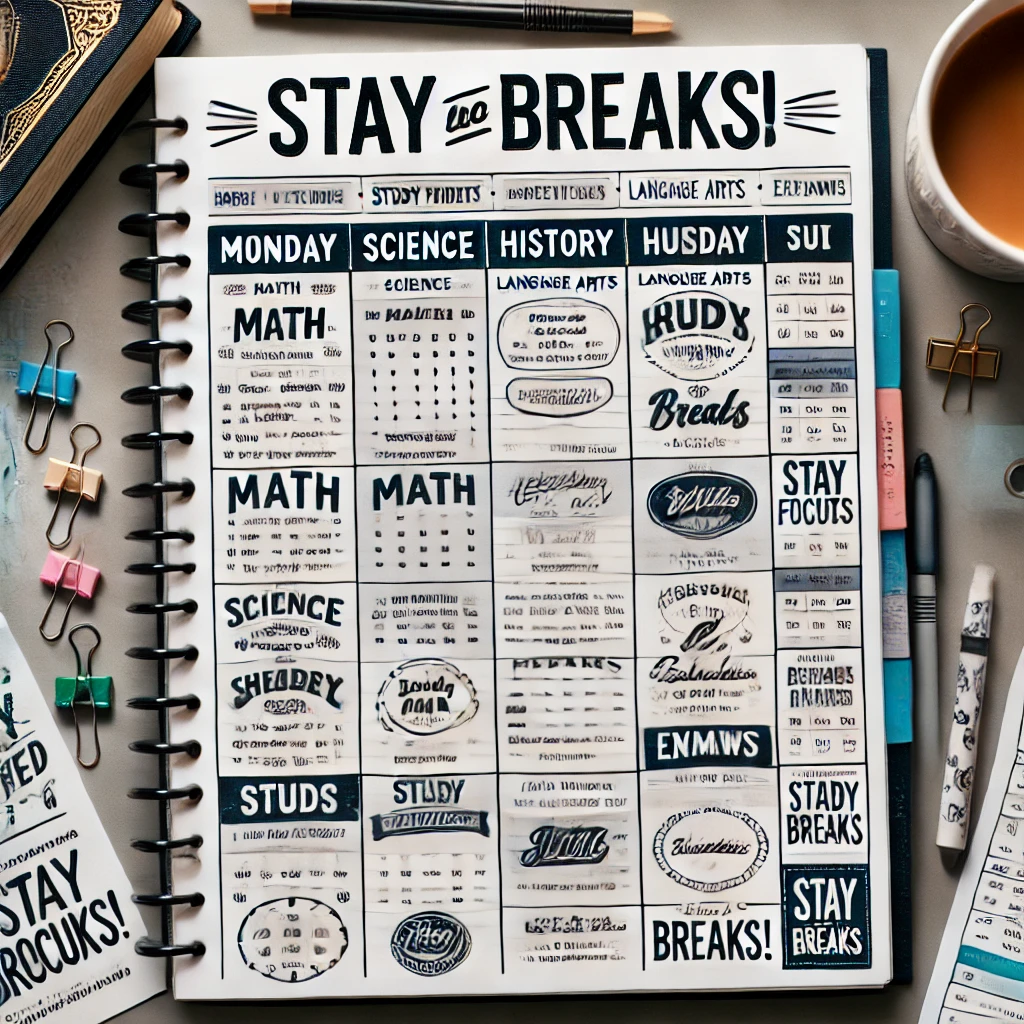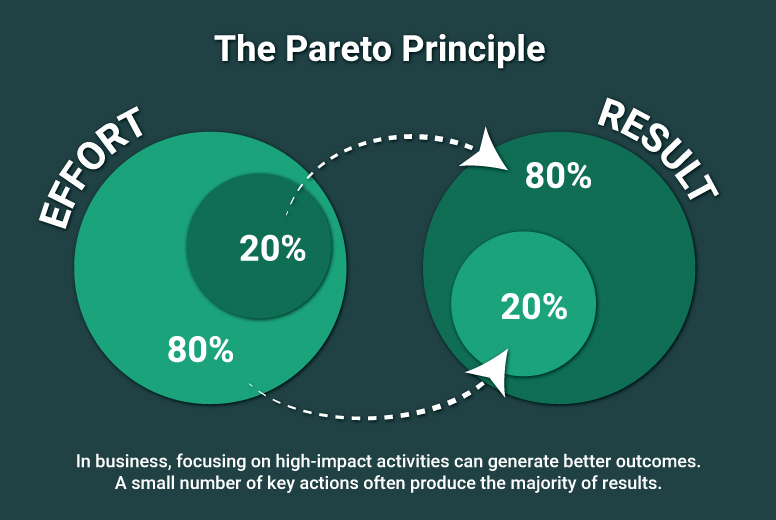7 min read

“How To Study Anything, If You Have Time”
Introduction
Previously, we’ve made posts regarding how to study if you don’t have time. The purpose of these posts is to guide you on an effective and efficient way to studying, retaining information, and memorizing anything in as little time as possible.
But, there’s one really major trade-off to this that makes it less of a beauty than it seems. That’s regarding how time (in this sense) usually in many cases, is always in abundance. You have 24 hours in a week, spend 6-7 of it sleeping (be honest, a majority of people working everyday rarely ever get 8 hours), spend another 8 eating, and another 2-3 eating and working out (if you do exercise and have 3 meals a day, of course). So, if you did the math, and maxed out every single one of those variables, you would still end up with 5-6 hours of free, usable time left.
Yeah. There’s the time you’ve been looking for.
And even if you spent some amount of this time napping and calling a friend, you would still have hours of time left.
The Truth
Of course, this post has nothing to do with making the most of your time – because, this has little to nothing to do with that. Instead, we’ll actually be looking to spend more time than usual in order to get the grades you so desperately desire. And guess what? That’s totally fine. In some cases, 30 minutes, an hour, or 2 hours won’t be enough.
Some days, for some tests, for some assessments, you might need 5, 6, or 8 hours dedicated towards mastering the material. Again, sometimes, to do the best you can, you will need to spend that level of time preparing for something.
So, how can you spend that time well, and perfectly space out your time over the span of a certain time period, in order to maximize your returns per minute of time?
Pre-Study
Say you’re at school, learning (probably), and completing some form of classwork; ultimately leading up to some quiz or test. Ok, great.
This part of this post is really just understanding what to do prior to the minute you get home (or wherever you study primarily), and how to spend every minute on your plate as best as possible.
Thankfully, this is the easiest and least important part of your day. Here, all you need to do is:
- Not tire yourself out (if you do, you’ll end up losing time to napping once you get home)
- Eat (don’t starve yourself – it impacts brain function negatively)
- Actually have a clue on what you’re planning to study for later in the day
How To Study For Any Subject, As Effectively As Possible
Notice how we’re looking to study effectively rather than efficiently. Why? Well, that’s because there’s a distinct difference.
Just because I study efficiently doesn’t mean that I’m also studying effectively. When I study efficiently, I’m looking to cram as much high-quality study time (that might not yield as high of an ROI relative to ‘effective’ studying, which might require 2, 3, or even 5x the quantity of time as input) in as little time as I have available. That’s the goal.
So, don’t get the two confused. Of course, while we’re studying, we’re looking to make the most of all the minutes we put in. That was the original goal, and will continue and remain as the goal of our study sessions.
Now that we have that cleared up, it’s time to put everything together.
Math-Based Subjects
For these classes, your goal should be long-term practice and comfortability from day one. I used to make this mistake a couple of years ago before I discovered how to really study, and it led to me getting average grades or even below-average scores that made me feel disappointed in my ability.
I don’t want the same thing to happen to you. So, let’s make one thing clear. You can cram for every other subject in school, but you CANNOT for math-based subjects. Classes like Chemistry, Physics, Geometry (probably), and Calculus are all courses that take time to get used and comfortable to. If you make that time available to yourself at all times, you will never reach your true potential in math. You aren’t bad at math, you might just be too careless about math. Word of advice: please don’t think that way.
Studying for math is supposed to take time, and be sure that from the moment you start a new unit, that you are studying from the get-go. Of course, please don’t over-study. Only get comfortable with the newly covered concept in class. If it made no sense at home, try and make sense of it at home. You have YouTube, Google, and really good tip that you should take advantage of: math-focused apps that provide step-by-step solutions to a photo of your problem.

Humanities
For classes like English and History, it’s so unbelievably straightforward. For classes that focus on English, language, and anything similar, you have one goal that stands above anything:
- To familiarize yourself with X language as much as possible.
So, what is the best way to do this? Simple. Read and write. Do both of these (not just either or), and you will master your effectiveness at both abilities faster than any of your peers.
For History classes, which is usually the harder one, you need to prioritize two things. One stems from STEM-focused subjects, and the other branches off from language classes. Those two are familiarization and comfortability. You need to be familiar with the content you’re reviewing, and be so comfortable with it that if someone asked you any question regarding the setting, year, or significance at hand, you’d be able to answer it easily.
So, to do that, you need to just study and familiarize yourself with the course content a mile before test day. If you just started a new unit, and your test is in 2 weeks, you have a week to slack off, and then another week to take things serious and start picking up the pace.
But, if you wish to start studying right off the bat, while still keeping things effective and simple, here’s what you can do:
Do This, And You’ll Score Higher
- Stop reading the textbook. There’s already plenty of information on the topics you’re reading online – or through some other method of consuming information. Reading the textbook will only slow you down and lessen your ability to memorize information in as little time as possible.
- Start watching YouTube videos and documentaries online. Lots of these are incredibly entertaining (which is a relief for a majority of your brains), so watching these will be a piece of cake. But, of course, you have to stay awake for it – while ideally, taking notes on it. Whatever allows you to retain what’s occurring is the best option.
- Find an interesting way to pack in the information that you’re covering, while keeping it easy and information-packed. By that I mean: packing the information you’re covering in an educative format that’s useful for you, and for anyone else that might you might know studying the same stuff.
- For example, a good way to study and prepare for a test (when you have lots of time in store) is to just take loads of research online, use a tool that packs all that information in an easily readable format (lists, short sentences), where from there, what you do now is -in your own words- get descriptive on everything, even including humor, profanity, descriptive imagery, diagrams, or anything of choice into your descriptions. Whatever helps you remember, is probably the option to go with.
Summarized
If you actually aren’t in a rush, and have plenty (or maybe not plenty, but enough) of spare time to work with, your best bet is to start from a couple days (or weeks) in advance, slowly -but gradually- increasing your study time every single day. For example, on the first day of studying something in Biology, maybe you find that based on what you’re currently learning and have reviewed, just 15 minutes of study time is enough. But, as you progress through the unit, you find yourself encountering more confusing and difficult concepts. So, you dedicate more time towards learning and mastering the material by upping the time to 45, then 60, then 75 minutes per day.
Now if you were studying for real, 75 minutes is a bit of a stretch for a Biology class, something that requires very little math and instead just relies on your memorization and recall ability. But, it’s a good example at least.
What you need to leave here knowing is this: When time is in your favor, you need to bend it in a way that maximizes your output per minute of input time and effort. This will ensure that you are actually making good returns, and not the opposite. Only study the things in orderly fashion, in chronological order, avoiding going ahead of the professor (because that requires too far of input when you’ll just end up reviewing some of it in class anyways), and prioritizing the concepts that leave you confused.

Tip: How To Save More Time & Earn The Same (or higher) Score
This is a tip going around right now (or really the past couple of years), and I though it was pretty useful.
Say that you’re someone in the Gold Rush. Just like everyone else, you’re searching everywhere possible to have the opportunity to dig up gold. One problem though. Gold is scattered. In one spot, there might be plenty of gold while in another spot, there might be nothing at all.
And that spot with nothing at all likely describes over 95% of the land. Now, let’s apply this same principle to your studying.
Just like everyone else, you’re scavenging, looking for the best possible way to study as fast and effectively as possible while still scoring just as well (or even better). But, there’s only really a handful of methods that’ll work. So, you try it and apply it. (this is not analogy by the way)
You study, and study; accumulating around 3 hours of study time. Not bad! You cut down your time from 3 hours and 45 minutes to being 45 minutes shorter. That’s a really good investment! However, upon receiving your score for the most recent exam you took, applying that same method, something’s off.
You get a lower score. But, how? You covered everything that was to be prepared for, and all of a sudden, none of it meant anything?
The Mistake You Always Make (and how to fix it)
That’s the error. You studied EVERYTHING. If you want to study effectively, you want to turn your brain into a kind of sponge that can absorb any level of information; but, you also need to be realistic with yourself at the same time. You are human, and not a robot. No one person can realistically expect another human being to remember dozens of document’s worth of information and apply it all on test day. That’s impossible and likely something none of your high school (and maybe even university) professors expect you to do.
You can only remember so much. And so, you should dedicate that time studying what really matters. In the context of a US History class, I could spend my time memorizing every important figure’s name, the dates of all the events, the historical context to every single major and small war/conflict that took place, or I could do none of that all.
As we mentioned earlier, if your input isn’t yielding you high output, or equal output, IT ISN’T WORTH IT. This is exactly that. If you find that spending 10 minutes studying X event helps you memorize more important information relative to the test compared to spend 30 minutes studying Y, then don’t bother wasting 100%, or even 60% of your effort studying Y. Spend it studying X.
80/20 Rule
If it makes it easier to recall, there’s an actual rule that emphasizes this point – going by the name of the ’80/20′ rule. This states that 20% of your input is responsible for 80% of your output. The rest is ‘waste’ of time that we prefer not to obsess over.
This doesn’t go for all classes, but in lots of cases, its the fewer quantity of concepts that’ll lead to you scoring the highest. Go for that.

Conclusion
If you have the time to study something, and the devotion to get your tasks done and complete – you don’t even know how well you can really be doing in school – or anything that you feel this suitably applies to. It goes beyond just regular education sitting down, and listening to a professor.



